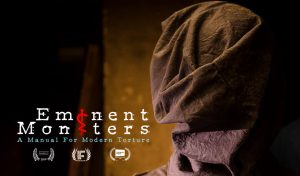The University of Portsmouth Centre for Research in Forensic Psychology cordially invite you to attend our key networking and information event on Friday 11th September 2015.
This networking event is aimed at organisations and businesses who can benefit from our current research on investigations, criminal behaviour and investigative practice.
The event will include presentations from five internationally-renowned academics exploring how psychological science can transform your investigative practice and reduce risk. Opportunities for Q & A and networking to discuss specific challenges will also be available.
This is a free event with limited spaces – please register via the following link: http://www.eventbrite.co.uk/e/forensic-psychology-knowledge-exchange-day-tickets-16750437008
Speakers
Reporting at the sharp end: memory in the real world – Professor Lorraine Hope
This talk will also focus on how innovative new research-based approaches to eliciting information can contribute to the task of obtaining detailed and accurate reports in challenging reporting contexts.
What have we learned from burglars about target choice and navigating the crime scene? -Dr Claire Nee
This talk will bring you up-to-date on what we know about the decision making and behaviour of the burglar, on the journey to commit a crime and during the commission of the act.
Allegations of non-recent sexual assault: psychological, investigative and legal challenges – Dr James Ost
A presentation about claims of abuse that are alleged to have happened many years ago. The talk will focus on how memory science can inform decision making and will briefly cover the reconstruction of memory.
Taking effective practice in reducing re-offending to scale: what have we learned? – Dr Dominic Pearson –
Reducing the recycling of offenders around the criminal justice system is a goal of offender services around the world, and this talk will discuss lessons learned from the application of research evidence to practice in offender management.
Cognitive credibility assessment: a new method to distinguish truth tellers from liars – Professor Aldert Vrij
Detecting deception in interviews is a difficult task and people’s performance is similar to that which can be expected by just tossing a coin. However, psychological research has demonstrated that people can improve their ability to detect lies when they ask specific questions during interviews.
Do you have questions about this event?
Email : lucy.akehurst@port.ac.uk



